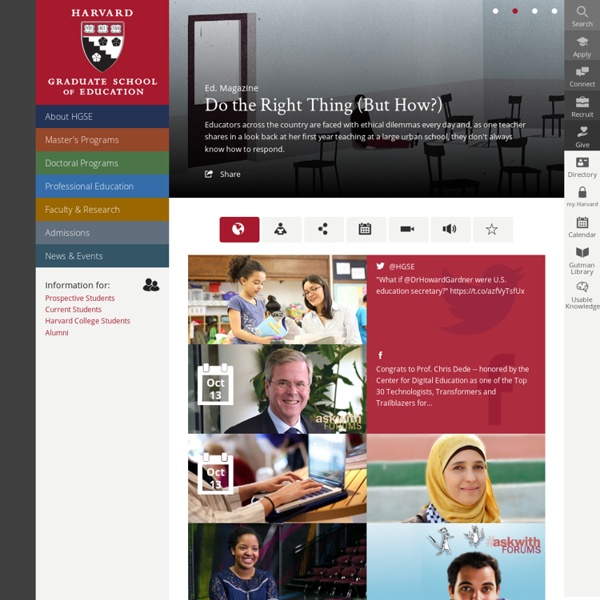



Friends School: Upper School » Community Service Community Service at Sidwell Friends School opens the hearts and minds of our students to the reality of other members of their community. This program often allows our students to become acquainted with people dealing with a variety of challenges and obstacles in their daily lives—people that most of them do not usually associate with on a regular basis. The relationships that our students form with these people allow them to understand the challenges and hopes of these people on a deeper, more personal level. As a result, it is our hope that they will develop empathy and compassion for these individuals, which will inform the personal and professional decisions that they make throughout their lives. Our program is designed to meet a wide range of pressing needs in our community. Through a strong reflection component, the program also teaches a real world understanding of issues of social justice, and challenges stereotypes and prejudices existing within our students.
ED. Magazine All Along 1 Comment When Lecturer David Rose, Ed.D.’76, and his colleagues came up with a new idea called Universal Design for Learning to help all learners, he had no idea just how big it would one day become. (From "Ed." magazine.)... Brennan by Design 1 Comment Assistant Professor Karen Brennan doesn’t want everyone to become a computer programmer, but she believes that it’s important for everyone, especially students, to be creators of technology and their learning, not just consumers.
Black Mountain College Black Mountain College, a school founded in 1933 in Black Mountain, North Carolina (near Asheville, North Carolina), was a new kind of college in the United States in which the study of art was seen to be central to a liberal arts education, and in which John Dewey's principles of education played a major role. Many of the school's students and faculty were influential in the arts or other fields, or went on to become influential. Although notable even during its short life, the school closed in 1957 after only 24 years.[2] History[edit] From 1933 to 1941, Black Mountain College was located at the YMCA Blue Ridge Assembly. Its Lake Eden campus, used from 1941 to 1957, is now part of Camp Rockmont, a summer camp for boys. Operating in a relatively isolated rural location with little budget, Black Mountain College inculcated an informal and collaborative spirit and over its lifetime attracted a venerable roster of instructors. The college suspended classes by court order in 1957.
launches online learning initiative MIT today announced the launch of an online learning initiative internally called “MITx.” MITx will offer a portfolio of MIT courses through an online interactive learning platform that will: organize and present course material to enable students to learn at their own pacefeature interactivity, online laboratories and student-to-student communicationallow for the individual assessment of any student’s work and allow students who demonstrate their mastery of subjects to earn a certificate of completion awarded by MITxoperate on an open-source, scalable software infrastructure in order to make it continuously improving and readily available to other educational institutions. MIT expects that this learning platform will enhance the educational experience of its on-campus students, offering them online tools that supplement and enrich their classroom and laboratory experiences. MIT will couple online learning with research on learning MITx online learning tools to be freely available
In East Jerusalem, A School Where Kids Can Be Kids Khan Academy Guerilla Educators The Upside of Dyslexia Dyslexia is a complex disorder, and there is much that is still not understood about it. But a series of ingenious experiments have shown that many people with dyslexia possess distinctive perceptual abilities. For example, scientists have produced a growing body of evidence that people with the condition have sharper peripheral vision than others. Gadi Geiger and Jerome Lettvin, cognitive scientists at the Massachusetts Institute of Technology, used a mechanical shutter, called a tachistoscope, to briefly flash a row of letters extending from the center of a subject’s field of vision out to its perimeter. Typical readers identified the letters in the middle of the row with greater accuracy. Those with dyslexia triumphed, however, when asked to identify letters located in the row’s outer reaches. Mr. The opposite is also the case. The discovery of such talents inevitably raises questions about whether these faculties translate into real-life skills. In the second study, Mr. Mr.
Escuela Moderna The front page of the bulletin of the group published on December 31, 1905 in Barcelona. La Escuela Moderna (Spanish for "The Modern School") was a progressive school that existed briefly at the start of the 20th century in Catalonia (Spain). Founded in 1901[1] in Barcelona by free-thinker Francesc Ferrer i Guàrdia, the school's stated goal was to "educate the working class in a rational, secular and non-coercive setting". In practice, high tuition fees restricted attendance at the school to wealthier middle class students. It was privately hoped that when the time was ripe for revolutionary action, these students would be motivated to lead the working classes. It closed in 1906. Today, the only remaining archives from the school are held in the special collections department of the University of California, San Diego.[2] References[edit] See also[edit] Popular education